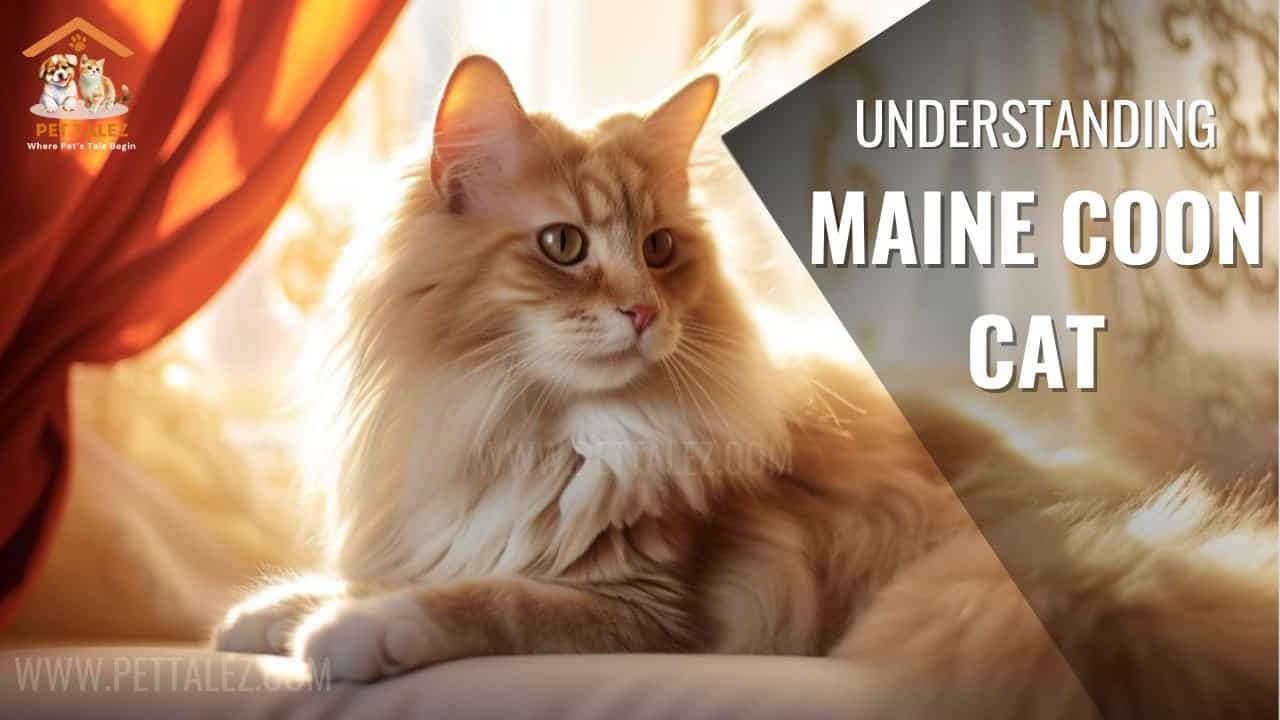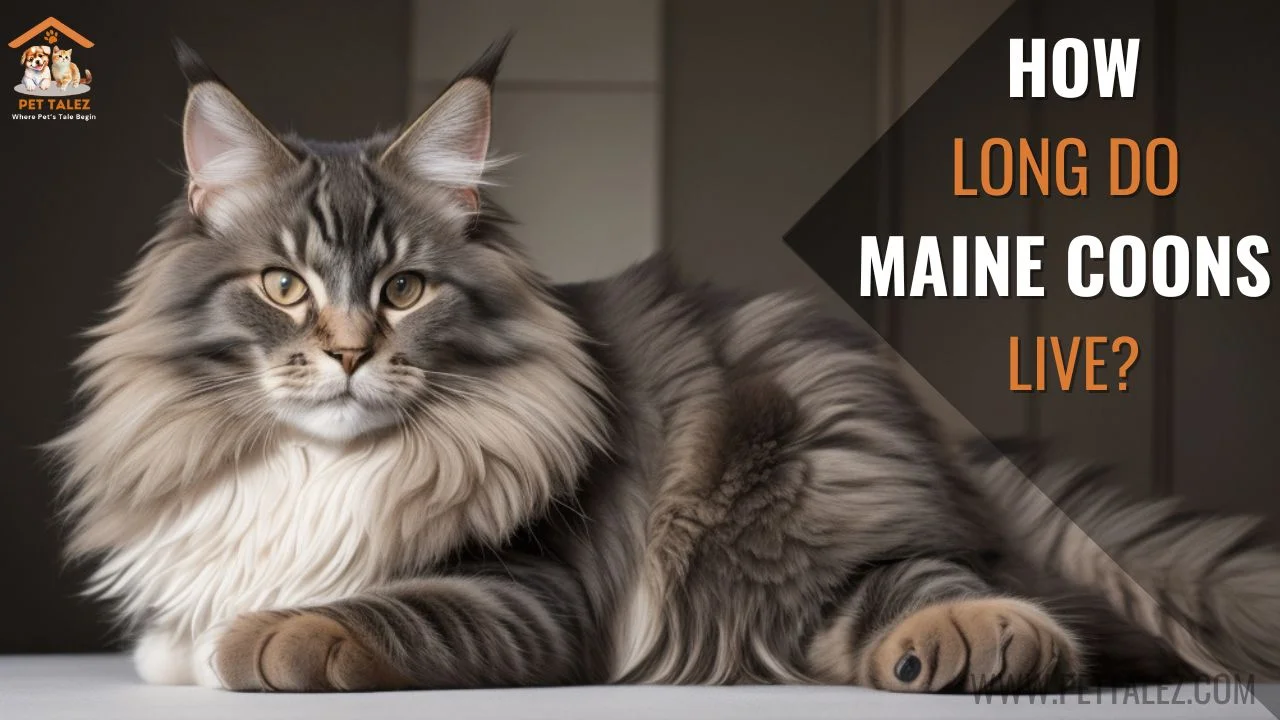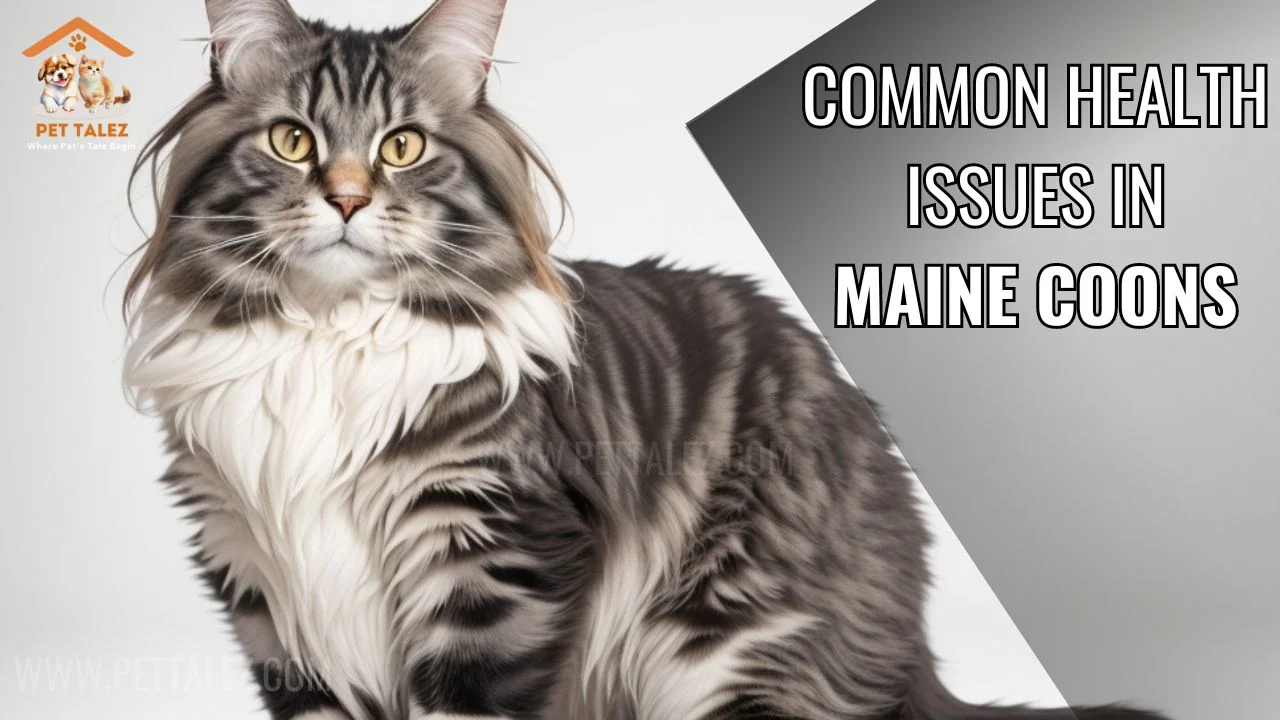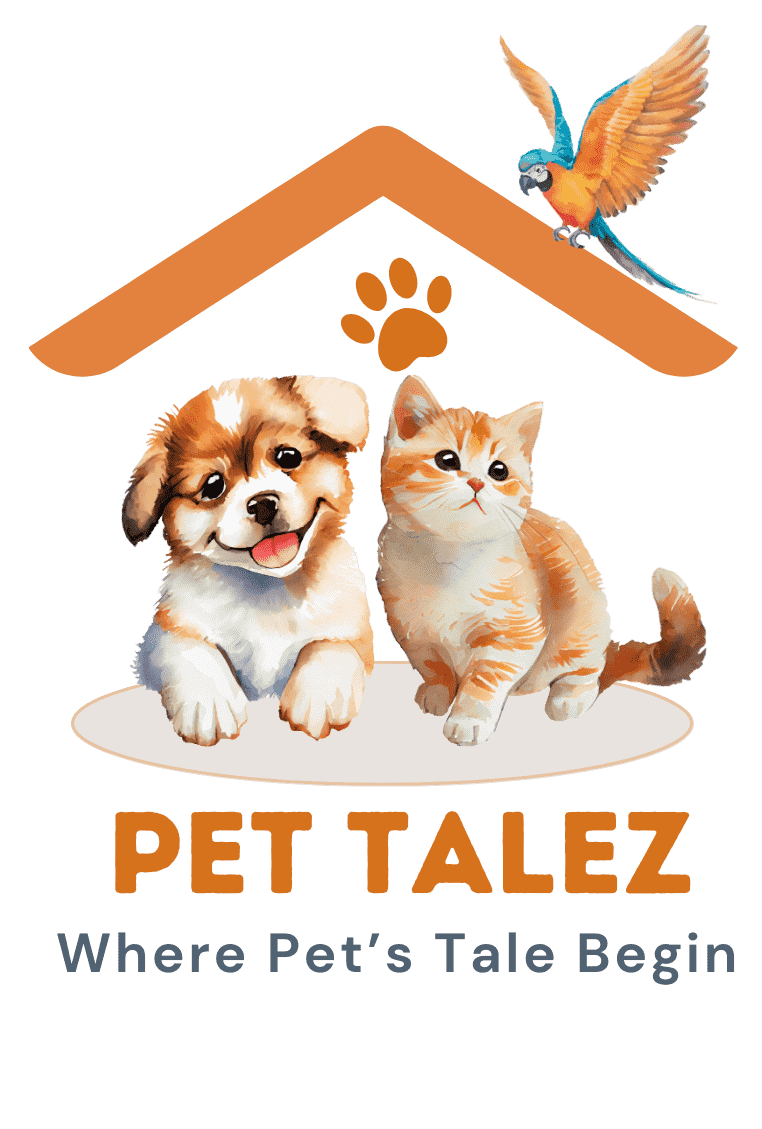Maine Coon cats are known for their impressive size, charming personalities, and luxurious fur. If you’re fortunate enough to have one of these majestic felines as a companion, you may be wondering, “How long do Maine Coons live?” In this piece, we’ll examine the variables influencing Maine Coon cats’ life expectancy and offer crucial advice to guarantee your furry companion has a long and healthy life.
Understanding Maine Coon Cat

Maine Coon cats are significant and unique. They’re known for their large size, excellent looks, and friendly personalities. These cats are from the United States, especially Maine. People call them ‘gentle giants’ because they’re adorable and big cats.
Distinctive Physical Characteristics:
Maine Coon cats are easily recognizable due to their unique physical characteristics:
- Size: They are among the most giant domesticated cat breeds, with some weighing up to 25 pounds or more. Their substantial size is one of their most defining traits.
- Tufted Ears: Maine Coons have tufted, pointed ears that give them a distinctive appearance. These tufts are more pronounced in some individuals than others.
- Bushy Tails: Their tails are long and bushy, often with a luxurious plume-like appearance.
- Coat: These cats sport a semi-long to long, water-repellent coat that varies in color and pattern. Their fur is soft and dense, giving them a regal and majestic appearance.
Friendly and Sociable Nature:
Cats from Maine Coon are well known for having friendly dispositions. They are often described as “dog-like” due to their friendly and outgoing nature. They get along well with people, children, and other pets, making them excellent family companions.
Intelligence and Playfulness:
Maine Coons are brilliant and curious cats. They enjoy interactive play and mental stimulation, and they are quick learners. Puzzle toys and interactive play sessions can keep them engaged and mentally sharp.
Vocal and Affectionate:
Maine Coons are known for their vocal nature. They often “talk” to their owners, expressing themselves with various vocalizations. They are also affectionate and enjoy being a part of family activities.
Loyal Companions:
Once you earn the trust and loyalty of a Maine Coon, they can be exceptionally devoted and loving. They often form strong bonds with their owners and enjoy spending time with them.
Overall, a Maine Coon cat is a lovable and big friend with excellent looks and a super nice attitude. They’re loved in many families and bring happiness and friendship to those who have them as pets, calling them ‘gentle giants’.
Understanding the Life Stages of Maine Coon Cats

Maine Coon cats, like all felines, go through various life stages as they age. Understanding these stages can help you provide the appropriate care and attention at each phase of your Maine Coon’s life. Here are the typical life stages of a Maine Coon cat:
Kitten Stage (0-6 Months):
- Birth to Weaning (0-8 Weeks): This is the newborn stage when Maine Coon kittens are entirely dependent on their mother for nourishment and care.
- Socialization (2-7 Weeks): Kittens start exploring their environment, playing, and learning social skills from their mother and littermates.
- Weaning (6-8 Weeks): They begin transitioning from mother’s milk to solid food during this phase.
Junior Stage (7-12 Months):
- Adolescence (7-12 Months): Maine Coon cats start to reach sexual maturity, and their playful and curious nature remains a dominant trait. This stage involves rapid growth, so proper nutrition is crucial.
Adult Stage (1-7 Years):
- Young Adulthood (1-4 Years): This is a peak physical condition and activity time. Maine Coons are playful, energetic, and fully mature. They are at their most vibrant and active during this period.
- Prime Adulthood (4-7 Years): The cat’s body continues to develop, and they are often at their healthiest during these years. Routine veterinary care is vital to maintain their well-being.
Mature Stage (7-10 Years):
- Midlife (7-10 Years): Maine Coon cats begin to show signs of aging during this stage. They may start to slow down and require additional care and monitoring. Dental issues may become more prevalent.
Senior Stage (10+ Years):
- Late Adulthood (10+ Years): In this phase, Maine Coon cats enter their senior years. They may experience decreased activity, potential health issues, and a need for specialized care, such as a senior diet and more frequent vet visits.
It’s good to know these are basic ideas, and each cat may grow a bit differently. Taking good care of them as they grow and changing things when needed helps your Maine Coon have a healthy life at every step. Going to the vet a lot as they get older is essential to fix any old-age health problems quickly.
How Long Do Maine Coons Live: The Average Life Span of a Maine Coon

The Maine Coon cat, known for its impressive size and distinctive appearance, typically has an average lifespan of 12 to 15 years. In terms of their size, male Maine Coons are generally larger, weighing between 15 to 25 pounds on average. Their female Maine coon breed, on the other hand, tends to be smaller, with an average weight range of 8 to 12 pounds. These cats, when fully mature, typically measure around 10 to 16 inches in body length. What’s particularly striking about Maine Coons is their long, luxurious tails, which can extend up to an impressive 36 inches in total length.
Factors Affecting Maine Coon Lifespan
A Maine Coon cat’s life length is affected by many things. Some come from inside the cat, and others from the outside. Knowing these things helps take good care of your Maine Coon so it can live a long, healthy life.
Genetics:
Diet and Nutrition:
Proper nutrition is a cornerstone of a long and healthy life for Maine Coon cats. These cats have unique dietary needs due to their size and breed characteristics. Feeding them a well-balanced diet that meets these specific requirements is essential. High-quality cat food formulated for Maine Coons should be the primary component of their diet. Overfeeding or underfeeding can lead to obesity or malnutrition, affecting their lifespan.
Exercise and Activity:
Maine Coons love to play and move around a lot. They must exercise to stay healthy, not get too heavy, and be happy. Playing with them, giving them toys, and chances to move keeps them fit and feeling good.
Healthcare:
Taking care of Maine Coon cats is essential. Attending the vet often for check-ups, shots, and early problem-finding is a must. Doing things like shots, flea control, and looking after their teeth helps keep them healthy and live longer.
Environmental Factors:
The living environment of your Maine Coon cat can significantly impact its lifespan”How Long Do Maine Coons Live”. Cats with outdoor access face different risks than indoor cats. Providing a safe and stimulating living environment that minimizes potential hazards is essential. Indoor Maine Coons should have access to toys, scratching posts, cozy resting spots, and a variety of stimulation to keep them engaged.
Overall, how long a Maine Coon cat lives is because of its genes, where it lives, and how it lives. If you look after these things, your Maine Coon can have a long, healthy life. Things like how they’re born, good food, playing, going to the vet, and a safe, fun home all help them stay well and live longer.
How to increase your cat’s Lifespan

Increasing your cat’s lifespan requires providing them with the best care and attention. Cats, including Maine Coon cats, can live longer, healthier lives with the right approach. Here are some critical steps to help maximize your cat’s lifespan:
Balanced Diet:
- Give your cats wholesome food that satisfies their nutritional demands. Consult your veterinarian to determine the best diet for your cat’s age, breed, and health.
Portion Control:
- Refrain from overeating since obesity can cause several health problems. Measure your cat’s food portions and follow the feeding guidelines.
Regular Exercise:
- Engage your cat in regular play and exercise. Use toys that mimic prey to stimulate their natural hunting instincts.
Hydration:
- Make sure there is always availability to fresh, clean water. Proper hydration is crucial for their overall health.
Preventive Healthcare:
- Schedule routine veterinary check-ups for vaccinations and preventive care. Early detection and treatment of health issues are vital for longevity.
Dental Care:
- Establish a dental care routine. To avoid dental issues, frequently brush your cat’s teeth.
Weight Management:
- Monitor your cat’s weight and body condition. Sustaining a healthy weight is critical to general health.
Mental Stimulation:
- Provide toys and activities that challenge their intelligence. Cats benefit from mental stimulation.
Safe Environment:
- Create a safe indoor or outdoor environment, free from hazards and dangers. Minimize stressors in their living space.
Spaying/Neutering:
- Consider spaying or neutering your cat to prevent certain health issues and reduce the risk of some cancers.
Limit Outdoor Exposure:
- If your cat goes outdoors, supervise their time and protect them from dangers like traffic and predators.
Regular Grooming:
- Regular grooming prevents matting and hairballs. Brush your cat’s coat to keep it in good condition.
Social Interaction:
- Spend quality time with your cat. They thrive on companionship and attention.
Emotional Well-being:
- Provide a stimulating and enriching environment with safe plants, views, and sensory experiences to maintain their emotional well-being.
By implementing these strategies, you can significantly increase your cat’s lifespan and provide them a happy and healthy life. Remember that regular veterinary care, preventive measures, and attentive, loving care are vital to ensuring your feline friend lives a long and fulfilling life.
Common Health Issues in Maine Coons

Maine Coon cats, like all breeds, can be prone to specific health issues. Being aware of these common health concerns can help you take proactive measures to ensure the well-being of your Maine Coon. Here are some of the common health issues that can affect Maine Coon cats:
Hypertrophic Cardiomyopathy (HCM):
- HCM is a genetic heart condition that can affect Maine Coon cats. Heart failure may result from the thickening of the heart muscle. Early detection and routine veterinary examinations can aid in managing this illness.
Hip Dysplasia:
- Maine Coons can be prone to hip dysplasia, a condition where the hip joint doesn’t develop properly. Pain and trouble moving around may result from this. Weight management and exercise can help alleviate the symptoms.
Polycystic Kidney Disease (PKD):
- PKD is a genetic condition that leads to the formation of cysts in the kidneys. Early detection through genetic testing can help manage this condition.
Dental Issues:
- Dental problems, including gum disease and tooth decay, are common in Maine Coon cats. Regular dental care and toothbrushing can help prevent these issues.
Obesity:
- Maine Coons are known for their large size, and they can be prone to obesity if not provided with a balanced diet and regular exercise. Diabetes and joint difficulties are among the numerous health problems that obesity can cause.
Hypertension (High Blood Pressure):
- Hypertension can lead to various health issues in cats, including eye problems and heart disease. Regular blood pressure checks can help in early detection.
Dental Problems:
- Dental issues are common, and Maine Coons can be prone to conditions like gingivitis and tooth decay. Regular dental care, including tooth brushing, can help maintain oral health.
Respiratory Conditions:
- Some Maine Coons may be prone to upper respiratory issues, such as asthma. Environmental factors and allergens can trigger these conditions.
Diabetes:
- Obesity and genetics can increase the risk of diabetes in Maine Coon cats. Maintaining a healthy weight and diet can help prevent this condition.
Not all Maine Coon cats get these health problems, and good breeding can lower the chances of genetic issues. Going to the vet a lot, taking preventive care, and dealing with problems quickly can keep your Maine Coon cat healthy and happy for a long time.
How to Recognize Signs of Aging
Recognizing the signs of aging in your Maine Coon cat is essential to ensure they receive the appropriate care and attention as they grow older. While Maine Coon cats are known for their vitality, they, like all living beings, will eventually show signs of aging. Here’s how to recognize these signs:
Reduced Activity:
One of the most noticeable signs of aging in Maine Coon cats is a decrease in their overall activity level. They might not be as animated or lively as they used to be. Oldest Maine coon cats tend to sleep more and engage in fewer activities.
Stiffness and Mobility Issues:
As cats age, they may experience joint stiffness and mobility problems. You might notice that your Maine Coon has difficulty jumping onto higher surfaces or climbing stairs. They may also have trouble grooming themselves as effectively as before.
Changes in Appetite:
A change in appetite can be a sign of aging. Older cats might lose their enthusiasm for food, leading to weight loss. Conversely, some may develop an increased appetite due to metabolic changes, potentially leading to weight gain.
Changes in Behavior:
Aging Maine Coons might exhibit changes in behavior. They could become more irritable or less tolerant of certain situations. Alternatively, some cats become more affectionate and seek more attention from Maine coon owners.
Dental Issues:
Dental problems are common in aging cats. You may observe changes in their eating habits, reluctance to eat hard kibble, or drooling due to dental discomfort.
Changes in Grooming Habits:
Older cats may struggle to groom themselves adequately. You may notice that their coat becomes less well-maintained, leading to matting or hair loss.
Weight Changes:
Fluctuations in weight can signal aging-related issues. Weight loss may be due to reduced muscle mass or dental problems, while weight gain could be a sign of slower metabolism or other health concerns.
Changes in Vocalization:
Aging Maine Coons may become more vocal or produce different vocalizations. This could be a sign of discomfort, anxiety, or other age-related issues.
Vision and Hearing Changes:
Changes in vision and hearing are common in aging cats. They may startle easily due to hearing impairment or exhibit difficulty seeing in low-light conditions.
Remember, these signs may be different for each cat. If you see significant changes in your Maine Coon’s behavior, health, or looks, talk to your vet. Going for check-ups and talking to your vet about your cat’s health helps fix problems as they age. That way, your beloved Maine Coon can have the best life in their senior years.
Conclusion: How Long Do Maine Coons Live
In conclusion, Maine Coon cats are beloved for their impressive size and charming personalities. While their average life expectancy is 12 to 15 years, with proper care, they can live even longer, making them excellent companions for many years. By following a balanced diet, providing regular exercise, and staying vigilant about your health, you can ensure your Maine Coon enjoys a long and healthy life. If you’re considering bringing a Maine Coon into your family, be prepared for a joyful journey with your “gentle giant.”
FAQs: How Long Do Maine Coons Live
A. A Maine Coon's lifespan typically ranges from 12.5 to 15 years.
Q. How can I extend my Maine Coon's lifespan?
A. You can extend your Maine Coon's lifespan through proper diet, regular exercise, healthcare, and a stimulating environment.
Q. Are Maine Coon cats prone to specific health issues?
A. Yes, Maine Coon cats are prone to heart conditions, hip dysplasia, and dental problems.
Q. When should I start monitoring my Maine Coon for signs of aging?
A. Begin monitoring your Maine Coon for signs of aging around the age of 7 to 10 years.
Q. What role does genetics play in a Maine Coon's lifespan?
A. Genetics can influence a Maine Coon's lifespan, so knowing your cat's family history is essential for their health.
